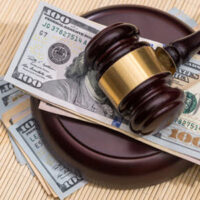Small Business Loans and Bankruptcy

If you are a small business owner, you may have looked to the Small Business Administration (SBA) for a loan. The SBA provides valuable help to smaller businesses, which often have problems getting loans from more traditional channels. The SBA both lends and guarantees part of your loan, making it more likely that you can get a loan and making you a better “gamble” to lenders.
Defaulting on SBA Loans
The SBA will often require you to sign a personal guaranty for the money or the loan that the SBA gives to you. That means that even though you are getting a loan for your business, if the business fails, or you can’t pay back the loan, it’s not just the business (the corporation) that owes the money—you, personally, will owe the money back that you borrowed and can’t pay back.
Your lender or the SBA may be able to take your personal property or garnish your wages to repay itself for what you didn’t pay back. However, bankruptcy does provide relief from these SBA loans.
SBA Loans and Bankruptcy
Just because SBA loans are government loans doesn’t mean they cannot be discharged in bankruptcy. They are, in fact, dischargeable, as are many other government-backed loans (student loans are an exception, as is money owed which is a fine or penalty from the government).
However, the problem is that many SBA loans are secured loans.
When you take out an SBA loan, in many cases, you will pledge your personal assets, or the business assets, to “back” or guarantee the loan. In bankruptcy, if property is pledged—secured—the property that has been pledged can be taken to satisfy the loan, even if you will never have any personal obligation to pay the loan back.
Unsecured debt, like credit card or medical debt, or any part of your SBA loan that is not secured by property, has no collateral and no property that is pledged to secure the debt.
When property is secured, and you file for bankruptcy, you could lose the property that was secured, unless some kind of arrangement can be worked out with the lender. If you can work out a payment arrangement, or if for some reason you can afford to pay the debt (now that your other debts will likely be discharged in the bankruptcy), you may have the ability to repay the SBA loan, if you so choose.
Of course, if you can stand to lose whatever property is securing the SBA loan, it may be better to give up that property and any obligation to pay the debt.
Is Your Property Secured?
Whether or not any property was pledged as collateral is something that your bankruptcy attorney can figure out or you. A security agreement that complies with state laws must have been signed by you, when you originally took out your SBA loan.
Call the West Palm Beach bankruptcy lawyers at Kelley Kaplan & Eller at 561-264-6850 to discuss discharging your debt in bankruptcy, no matter what kind of debt that it may be.
Resource:
sba.gov/funding-programs/loans



